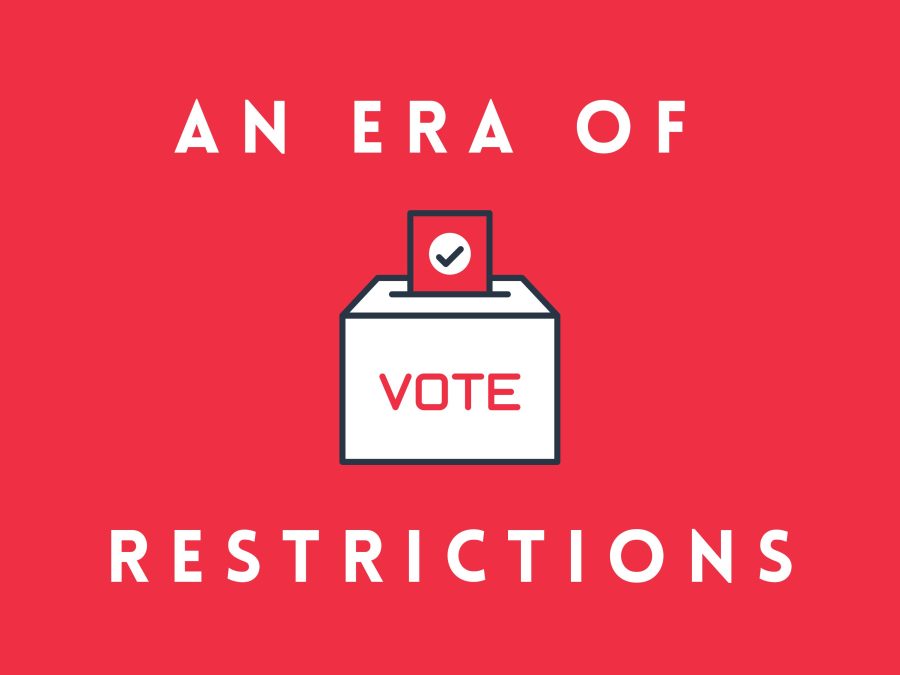Voting Restrictions Continue to Prevail in 2022
April 1, 2022
On Thursday, March 31st, U.S. District Court Chief Judge Mark Walker barred Florida from enforcing a restrictive voting law that was “discriminatory and needlessly infringed on Floridians’ voting rights.”
The decision is one of the first major blocks to new restrictive voting laws that surged upward in number within Republican-controlled states following claims of voter fraud, due to former President Donald Trump’s insistence on a “stolen election” back in 2021.
Senate Bill 90, as the Florida law is known, sought to add restrictions on drop boxes, mail voting, third-party voter registration, and “line warming”, such as giving voters food and water as they wait in line. Judge Walker wrote in his ruling that the law would be “making voting harder for all eligible Floridians, unduly burdening disabled voters, and intentionally targeting minority voters.” He pointed out that the carefully crafted provisions of the law specifically targeted Black voters based on what the plaintiffs could prove.
Citing testimony from Dr. Morgan Kousser, an expert witness, Walker wrote, “If the Legislature were merely reacting to the political mood, we would expect to see the Legislature carpet-bomb the election code. This Court finds that the Legislature enacted SB 90 to improve the Republican Party’s electoral prospects, not to respond to the general political mood.”
However, while this particular ruling of the Florida law may have been challenged, it is not the only of its kind by any means. As of January 14th this year, legislators in at least 27 states had introduced, pre-filed, or carried over voter laws with restrictive provisions.
The spike in these laws can at least be partially credited to voter fraud that former president Donald Trump told his supporters had lost him the 2020 Presidential Election. Throughout 2021, state Republicans implemented various bills, hoping to catch the numbers expressing this “fraudulence”, and even though they may not have found it, the year can nevertheless be distinguished by the storm of voting restrictions led by the GOP. In 2021, 19 states, most controlled by Republicans, enacted 34 laws that would make voting harder, particularly for people of a certain subset—most often racial minorities and students.
Wendy Weiser, the vice president of the Democracy Program at the Brennan Center, a liberal nonprofit law and public policy institute, has said about the 2021 voter restrictions, “What we’ve seen passed this year is more than a third of all the voting restrictions that have passed in the last decade happened this year,” adding that this does not even capture the magnitude of the scale because of the large number of individual provisions each bill and law boasts. These numbers promise to remain relatively high throughout 2022, as well, especially with the midterm elections later this year.
“Federal voting rights legislation is absolutely essential,” stated the Rev. Leah Daughtry, the campaign manager of Fighting for Our Vote, a coalition of organizations fighting to secure voting rights launched by the NAACP. “If legislation is not passed, states will take that as permission to continue to do what they are doing by restricting people’s access to the ballot, and it is absolutely going to be seen as permission and as a sanction for them to continue to do what they’ve already begun.”
The debate of problem versus solution with voting rights restrictions is seemingly a never-ending conflict, but one thing is for sure—these policies will continue to prevail in modern-day politics for the time being.







